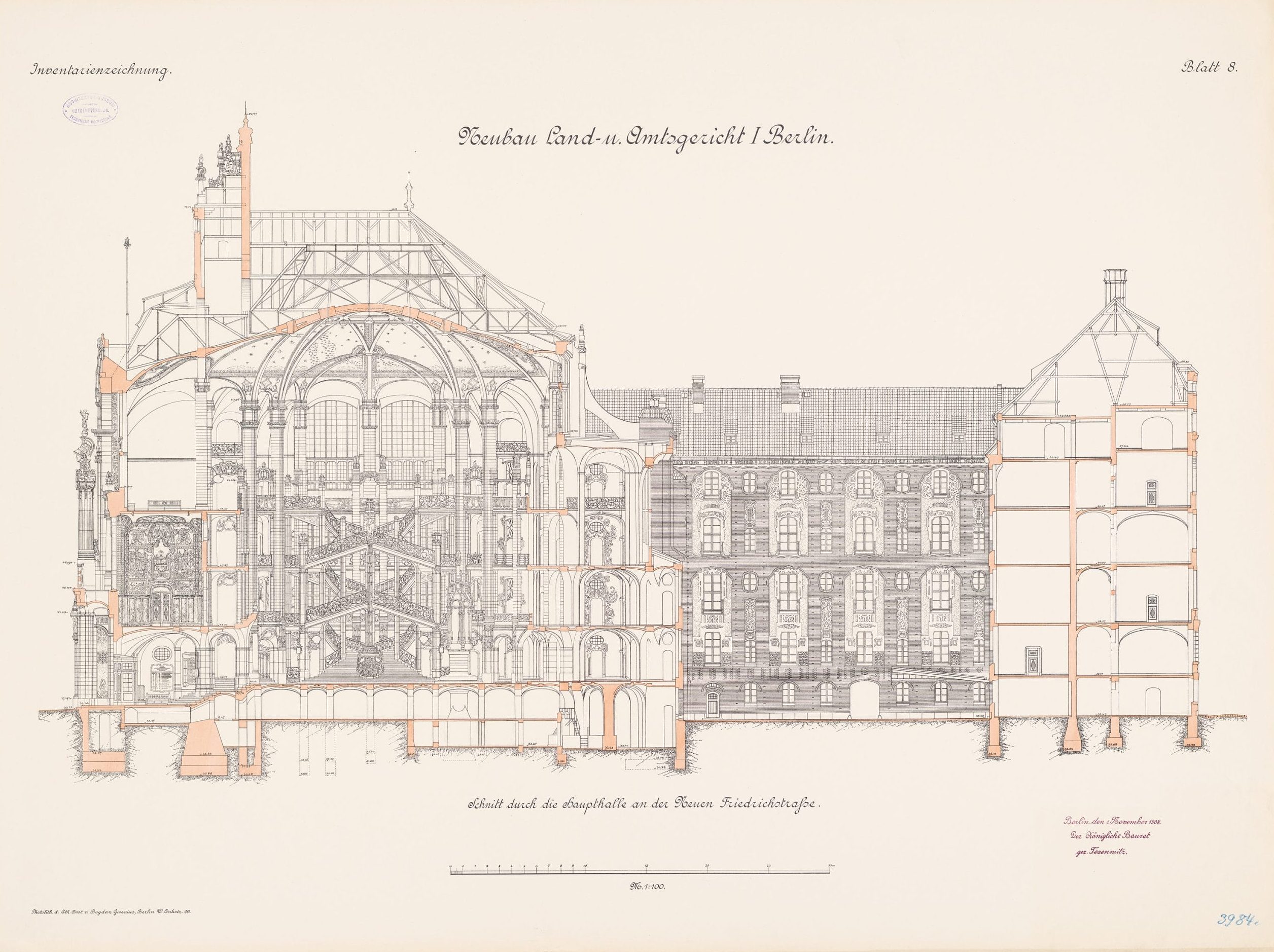Talk by Dorothea Caroline Douglas at the:
The Reichsjustizgesetze of 1877 reconfigured imperial Germany’s disparate legal orders – previously largely based on written communication – under a mandate of publicness, rendering much of the territories’ juridical infrastructure abruptly redundant. The codification of civil jurisprudence, achieved in the Bürgerliches Gesetzbuch of 1896, introduced into this process an orienting fiction of the legal subject governed by Privatautonomie (private autonomy): a self-interested, autonomous actor navigating legal procedures toward their own ends. In Prussia, a specialized department within the Ministry of Public Works was tasked with creating new courthouses capable of accommodating and efficiently organizing the novel legal masses these changes introduced. My talk traces the translation of the fantastical legal subject into concrete architectural space within imperial Germany’s largest civil court at the turn of the century: the Amtsgericht I Berlin-Mitte.

Focusing on the main staircase and adjoining waiting areas in this monument to juridical efficiency, I explore the new topos of interaction between the legal subject and the machinery of the administrative state as a site of narrative production. In planners’ imbricated conceptions of crowd management, building hygiene, and aesthetic reception, the fiction of the legal subject is spatialized and brought under an ethos of movement, control, and progress. Thus, dynamic system and ideal user merge into a singular narrative of bureaucratic efficiency and order of justice. Building on a literary reading of the Zivilprozessordnung (codes of procedure), as well as new archival research, my talk traces this fiction through newspaper reports, departmental guidelines, and informal communications between planners. The threshold of the stairway emerges here as a neurotic zone of filtration, policed through social, hygienic, and technical operations. Where the archive collapses use into systematized process, I propose a situated reading of space – using the waiting hall as the functional site of this narrative’s disintegration—to trace the removal and arrest upon which legality is based. Responding directly to the symposium’s call to explore the archive as a site of fiction production, this talk recovers an undocumented spatial experience central to modern legal life. In doing so, it makes a case for use as an archival practice and a necessary supplement for understanding interiors where human presence persists but leaves no official trace.
19 September 2025, virtual